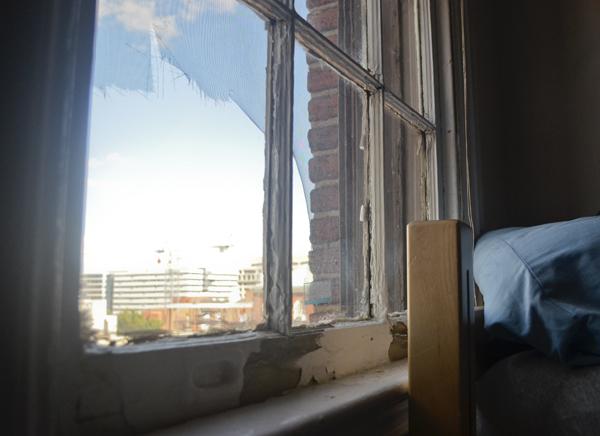Students will be able to track FIXit’s progress online each month as the University’s facilities services aim to speed up response times.
University officials will post completion rates online for the first time this week to show students how the repair service stacks up against its goal to fix 85 percent of routine requests within five days and emergency requests within one day. Last year, the University addressed about three-quarters of its roughly 55,000 routine and emergency requests within those windows.
While the University has yet to decide how much FIXit data it will release each month, Senior Associate Vice President for Operations Alicia Knight said her office will at least share the percentage of requests resolved within the 24-hour and three-day time frames.
Knight said she wants to show students “how we measure ourselves,” which she said will hopefully address communication issues that students have raised in the past. Students will also get an additional email when their request is put on a worker’s daily schedule.
The move comes just two months after a Facebook page about poorly maintained residence halls – dubbed “GW Housing Horrors” – landed the school in the spotlight across the city and on some national news sites. The University has historically declined to provide FIXit data because officials said it could be misrepresented. Officials disclosed numbers last spring for the first time since 2011.
About 72 percent of FIXit requests were tied to residence hall issues last academic year, Knight said. She declined to provide the breakdown of completion rates for emergency and non-emergency FIXit requests.
While workers do not complete 100 percent of a day’s tasks, Knight hopes the extra communication will “enable students to have a better sense of expectations,” and also help them prepare for someone to do work in their room.
At a Board of Trustees meeting this month, Student Association President Julia Susuni criticized slow on-campus maintenance response times, telling Board members that requests are more quickly resolved in apartment buildings off campus than at GW.
Dean of Students Peter Konwerski said the University is committed to speeding up response times, but each situation varies depending on the severity.
“We’d love to be able to say, ‘Any ticket put in every day could be fixed.’ That’s probably not a complete reality because some things are emergencies: water, power, life safety and other things are – a light bulb out might take another day or two,” Konwerski said.
After working with Knight to help the facilities office better communicate with students, Susuni said she is also pressing the University to find ways to speed up response times in monthly meetings with the top facilities and housing officials.
Angelina Hoidra, a sophomore who lives in FSK Hall, said she is glad FIXit will provide more information to students, allowing them to worry less about when workers show up in their rooms.
“I think a lot of people call FIXit and then they’re like, ‘Did they come? Did they not come? Is it working?’” Hoidra said.
She added that making more data public and available is not only about transparency and improved communication.
“Publicizing how much you are getting done is a bigger kick in the pants to get things done, too. Because if you are not doing as much as you are supposed to, people are going to know,” Hoidra said.







